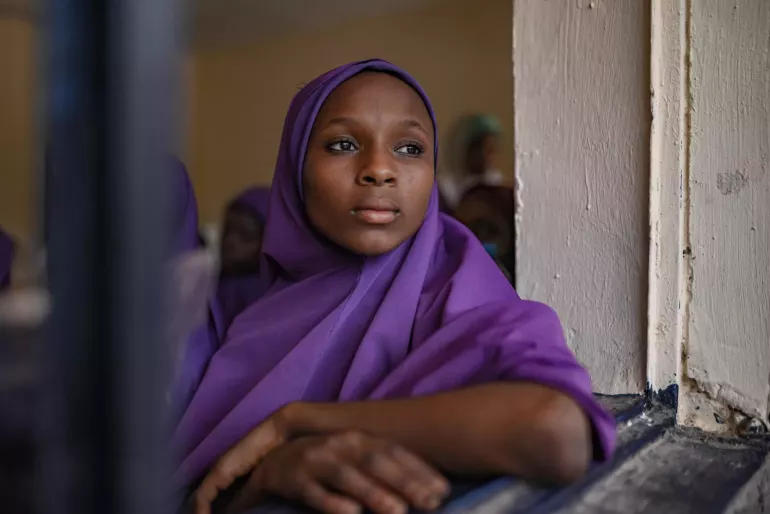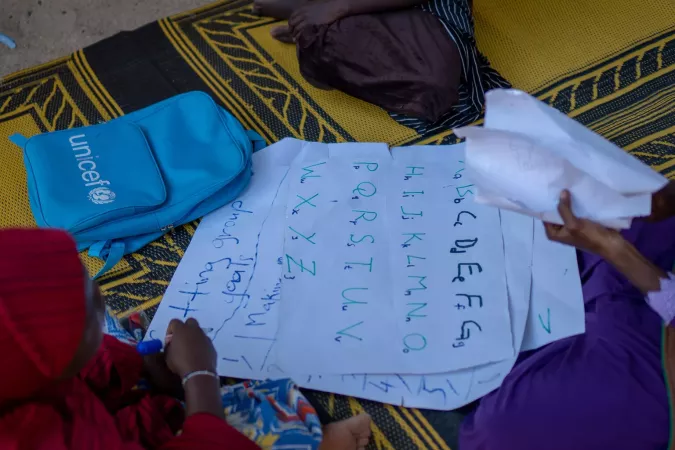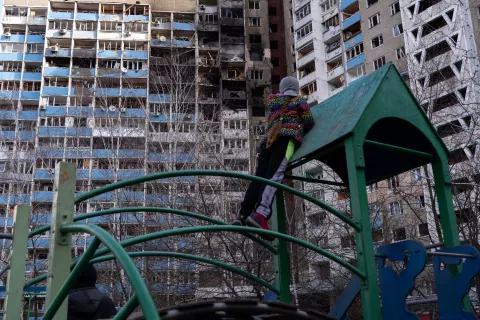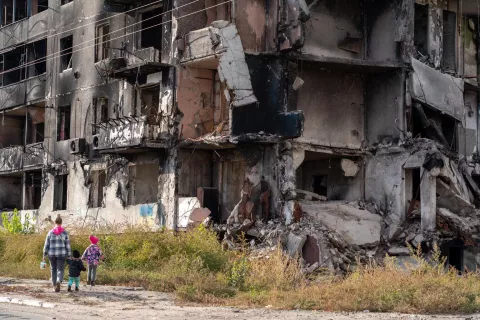On the 10-year mark of the Chibok abductions, UNICEF urges action to secure children's education in Nigeria
New UNICEF report shows that just 37 per cent of schools across 10 states have early warning systems in place to identify threats, such as school attacks

ABUJA, Nigeria, 15 April 2024 – As Nigeria marks 10 years since the mass Chibok abductions in the Northeast, 90 girls remain in captivity, and the country is recovering from another abduction of schoolchildren in Kaduna state in March of this year. UNICEF is calling for intensified efforts to protect the country's most vulnerable population—its children.
UNICEF released today the ‘Minimum Standards for Safe Schools (MSSS) Monitoring Report,’ revealing a stark reality: the journey toward ensuring every Nigerian child can learn in a safe environment is far from over. Most notably, the report shows that just 37 per cent of schools across 10 states have early warning systems in place to identify threats, such as school attacks.
"The kidnapping of the Chibok girls was a wake-up call to the severe risks our children face in their pursuit of education,” said Ms. Cristian Munduate, UNICEF Representative in Nigeria. “Today, reflecting on this tragedy and other recent abductions, it is evident that our efforts to safeguard our children's futures must be amplified. Given these alarming statistics, we must address not only the symptoms but also the root causes of this crisis. Education is a fundamental right and a crucial pathway out of poverty. Yet, for too many Nigerian children, it remains an unattainable dream."
The analysis looked at 6 result areas – strong school system, violence against children, natural hazards, conflict, everyday hazards, and safe school infrastructure – and uncovered significant disparities in the implementation of safe school standards across Nigerian states. Borno State, with a 70 per cent fulfilment of the standards, exemplifies a strong commitment to child safety amidst adversity. Yobe State also demonstrates promising progress. In contrast, Kaduna and Sokoto states lag significantly, with fulfilment rates at just 25 per cent and 26 per cent, respectively. In addition to the finding on early warning systems and conflict, the report shows that while schools perform relatively well in terms of training school-based management committees on safety and responding to children’s well-being concerns, only 14 per cent of the participating schools across the 10 assessed states have functioning, safe, accessible infrastructure and just 36 per cent have school staff trained on natural hazards.
The analysis comes on the heels of disturbing reports of violence affecting schools, with brazen abductions of students on the rise. In the last 10 years, conflict-related violence has led to more than 1,680 children abducted while at school and elsewhere; 180 children killed due to attacks on schools; an estimated 60 school staff kidnapped and 14 killed; and more than 70 attacks on schools, according to verified reports by the United Nations.
The threat of abduction of students is severely affecting children’s learning. As of 2021, over one million children were afraid to return to school, and in 2020, around 11,500 schools were closed due to attacks, according to Policy Weekly by Nextier.
UNICEF Nigeria is calling for the government, partners, and the international community to take decisive action to:
- Ensure all schools across all states have the resources and tools to fully implement the Minimum Standards for Safe Schools, focusing on the most vulnerable regions.
- Address critical gaps in safe school infrastructure, preparedness for natural disasters, conflicts, and comprehensive approaches to violence against children.
- Strengthen law enforcement and security measures to protect educational institutions and communities from attacks and abductions.
- Prioritize education and child protection in national policies and budget allocations to create a safer, more inclusive environment for all Nigerian children.
- Ensure the continuity of education and learning when schools are shut through multiple learning pathways such as radio and TV programmes and through digital platforms like the Nigeria Learning Passport.
UNICEF is working with the government to ensure that every child can access safe learning environments. The agency has supported the inauguration of state safe school steering committees and the drafting of state-costed implementation plans for safe schools in 13 states. It also provides school grants, safety kits, training, and awareness raising to accelerate the implementation of the Minimum Standards for Safe Schools.
"As we remember the Chibok girls and all children whose right to education has been compromised, let this sombre anniversary serve as a catalyst for change. However, we must acknowledge the recent abductions, which underscore the persistent vulnerability of our schools. To ensure that schools are safe havens, strong political will and proper implementation of safe school standards are essential. Together, we can restore trust between educational institutions and the communities they serve, ensuring schools are sanctuaries for learning and growth," said Munduate.
#####



